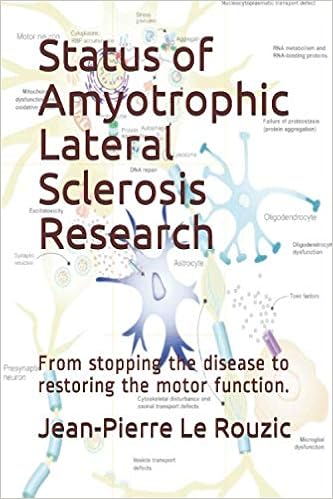The insulin signaling pathway plays a crucial role in regulating the growth and metabolism of neurons. Deregulation of IGF-R signaling has been linked to a variety of neurodegenerative diseases such as Alzheimer's, Parkinson's and Huntington's disease.
However, the role of insulin signaling in C9orf72 ALS / FTD is not yet clear. A positive correlation of the incidence of ALS with early-onset type 1 diabetes has been reported, and a decrease in insulin and IGF-1 in the blood and cerebrospinal fluid of patients with ALS, although the relevance of these findings to disease progression is unclear.
Intrathecal administration of IGF-1 improved motor performance, delayed disease onset, and prolonged survival in the SOD1G93A mouse model of ALS. However, three clinical trials of IGF-1 administered subcutaneously in ALS have reported conflicting results. The contradictory result of these trials may be due to insufficient administration of drugs to the brain and spinal cord and the fact that ALS has heterogeneous genetic risk factors.
Atilano, Isaacs, Partridge, and colleagues have shown in a recent article that insulin/IGF signaling is reduced in C9orf72 fly models using adult brain RNA sequencing. They further demonstrated that activation of insulin/IGF signaling can attenuate several neurodegenerative phenotypes in flies expressing expanded G4C2 repeats or the toxic dipeptide repeat protein poly-GR.
Poly-GR levels are reduced when components of the insulin/IGF signaling pathway are genetically activated in diseased flies, suggesting a rescue mechanism. This effect on poly-GR levels was confirmed in a mammalian cell model. Modulation of insulin signaling in mammalian cells also lowers poly-GR levels. Remarkably, the systemic injection of insulin improves the survival of flies expressing G4C2 repeats. Their data suggest that modulation of insulin/IGF signaling may be an effective therapeutic approach against C9orf72 ALS/FTD.
PTEN acts as a tumor suppressor gene through the action of its protein phosphatase product. This phosphatase is involved in the regulation of the cell cycle, preventing cells from growing and dividing too quickly. It is a target of many anticancer drugs. Pten reduction has also been reported to reduce the toxicity of C9orf72 repeats expressed in a mammalian cell line, again in agreement with the results described by scientists and the potential therapeutic benefit of modulating this pathway. It is also interesting to note that the process of brain aging has been linked to decreased insulin signaling as well as impaired insulin binding, which may partly explain why aging is a problem. risk factor for the disease.
The authors found that intrathoracic insulin administration prolonged the survival of flies expressing G4C2 repeats. Although robust, the lengthening of the lifespan was relatively modest, which could be explained by the transient nature of the insulin treatment. Insulin and IGF-1 ligands have already been tested in neurodegenerative diseases.
Overall, the researchers' study suggests that modulation of the insulin / IGF signaling pathway could be an effective therapeutic intervention against hexanucleotide repeat extension associated with C9orf72 neurodegenerative diseases, with InR being a genetic modifier. It will be interesting in the future to study the need for downstream effectors of insulin signaling in the rescue of toxicity. It is important to note that in the Drosophila, there is a single insulin-like system that has the dual function of insulin / IGF signaling; thus, the mechanism of toxicity described in the researchers' model could also be linked to IGFs. Therefore, it will be important to test whether treatment with insulin or IGF can save the survival of other C9orf72 ALS / FTD vertebrate model organisms.

